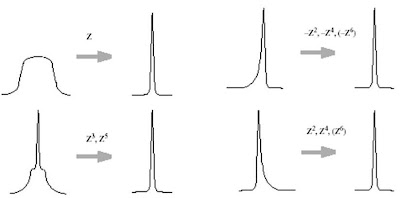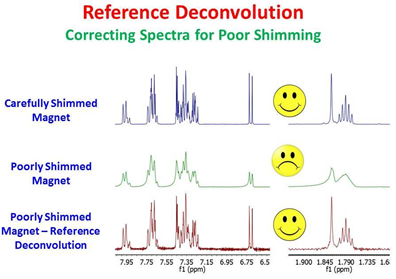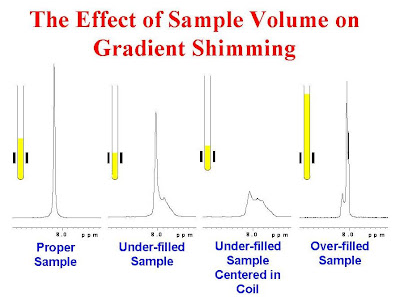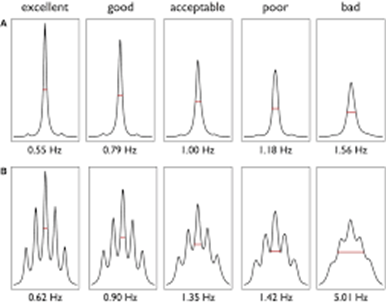I got a query about the troubleshooting for D2O shimming problem. Below is some of my summary.
Shimming problem is pretty common because of many factors.
In principle, magnet shims (+Z or -Z) are not optimized. So the shape of the peak is not distributed evenly. If so, it (the shape of the peak) will give you a hint as to which shims need adjustment. Two examples are as follows:

Except peak shape, poor shimming can also affect the sensitivity of the magnet/instrument. If the spectrum shows a significant decrease in sensitivity, it needs to double check shims and other factors.

Another factors can also affect shimming quality, e.g., sample volume (sample preparation and sample loading) problem (below).

Below are some of examples to determine shimming is qualified or not. Once shimming goes to “good” and “acceptable”, shimming needs adjustment . If shimming is poor or even bad, shimming must be optimized.
1H line-shape test can be considered as a standard, to show the line width (in Hz). For example, 1H NMR spectrum of chloroform in acetone-d6 obtained at 400 MHz. The line width at 50%:0.55%:0.11% (maximum height)=0.4:4.4:12 Hz
